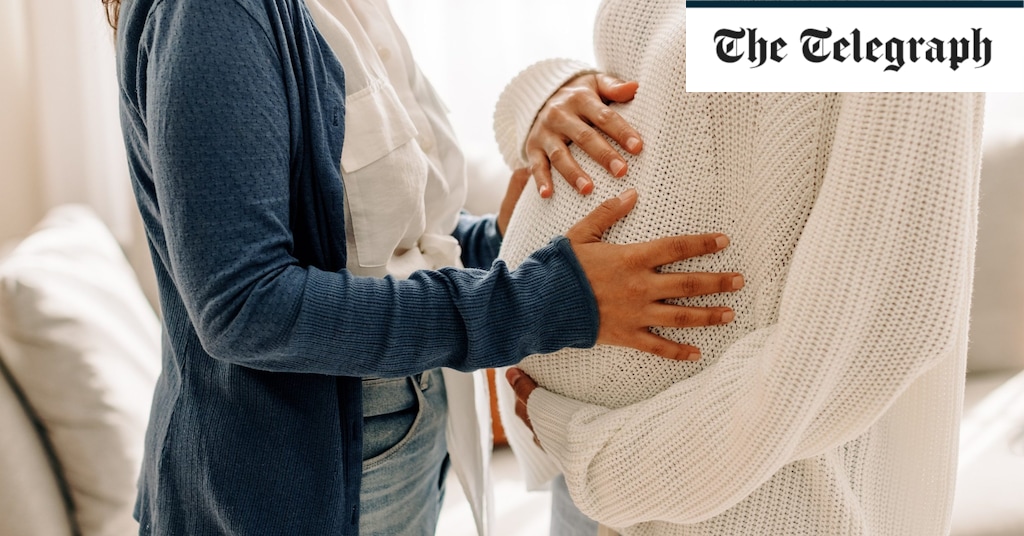Research shows that surrogate mothers are twice as likely to experience dangerous pregnancy complications, such as high blood pressure and heavy bleeding, compared to biological mothers.
Canadian researchers have studied data from nearly a million births and found that while babies born via surrogacy are no worse off, their biological mothers are at greater risk of health problems.
About seven percent of surrogates experienced serious complications, compared with only 2.4 percent of women who conceived naturally and 4.6 percent of those who underwent in vitro fertilization (IVF).
Researchers aren’t sure what causes this effect, but say carrying someone else’s child can have “physical and psychological consequences.”
Marina Ivanova, author of the study from Queen’s University in Kingston, Canada, said: “There are several possible mechanisms that could explain the increased risk of serious maternal morbidity among surrogate mothers.
“These include differences in basic health or socio-demographic characteristics of those who choose to become surrogates, possible differences in prenatal care and monitoring, the physiological and psychological impact associated with carrying a pregnancy for another person, as well as the effects of the treatments used during the IVF process.”
Surrogacy is legal in the UK, but is not legally enforceable, meaning a birth mother cannot be forced to give up a child. It is also illegal to pay a woman more than reasonable expenses.
The number of parents having a baby with the help of a surrogate in England and Wales has almost quadrupled in the past 10 years. Parental orders, which transfer legal parentage to the surrogate, rose from 117 in 2011 to 435 in 2021.
One in seven
The new findings show that one in seven surrogate mothers experienced postpartum bleeding (heavy bleeding after birth), compared with only one in 17 women who conceived naturally.
Also, one in seven surrogates suffered from high blood pressure, compared to only one in 15 surrogates who conceived unassisted.
In both cases, IVF treatment carried a higher risk of complications, but not as high as surrogacy.
Because surrogates have to undergo IVF, it is likely that assisted reproduction increases some of the risks. However, according to the researchers, this is not the only cause.
Dr. Maria Velez, study supervisor and lead author, said: “[Surrogates] were also less likely to be in the highest income bracket, and we know that lower socioeconomic status is associated with higher rates of serious maternal morbidity.
“However, sociodemographic characteristics were taken into account in the analysis, and the results were similar, suggesting that there may be different mechanisms.”
Despite the increased risk, the study found no significant difference in infant health outcomes.
The research was presented at the annual meeting of the European Society of Human Reproduction and Embryology (ESHRE) in Amsterdam and the results were published in the journal Human Reproduction.
